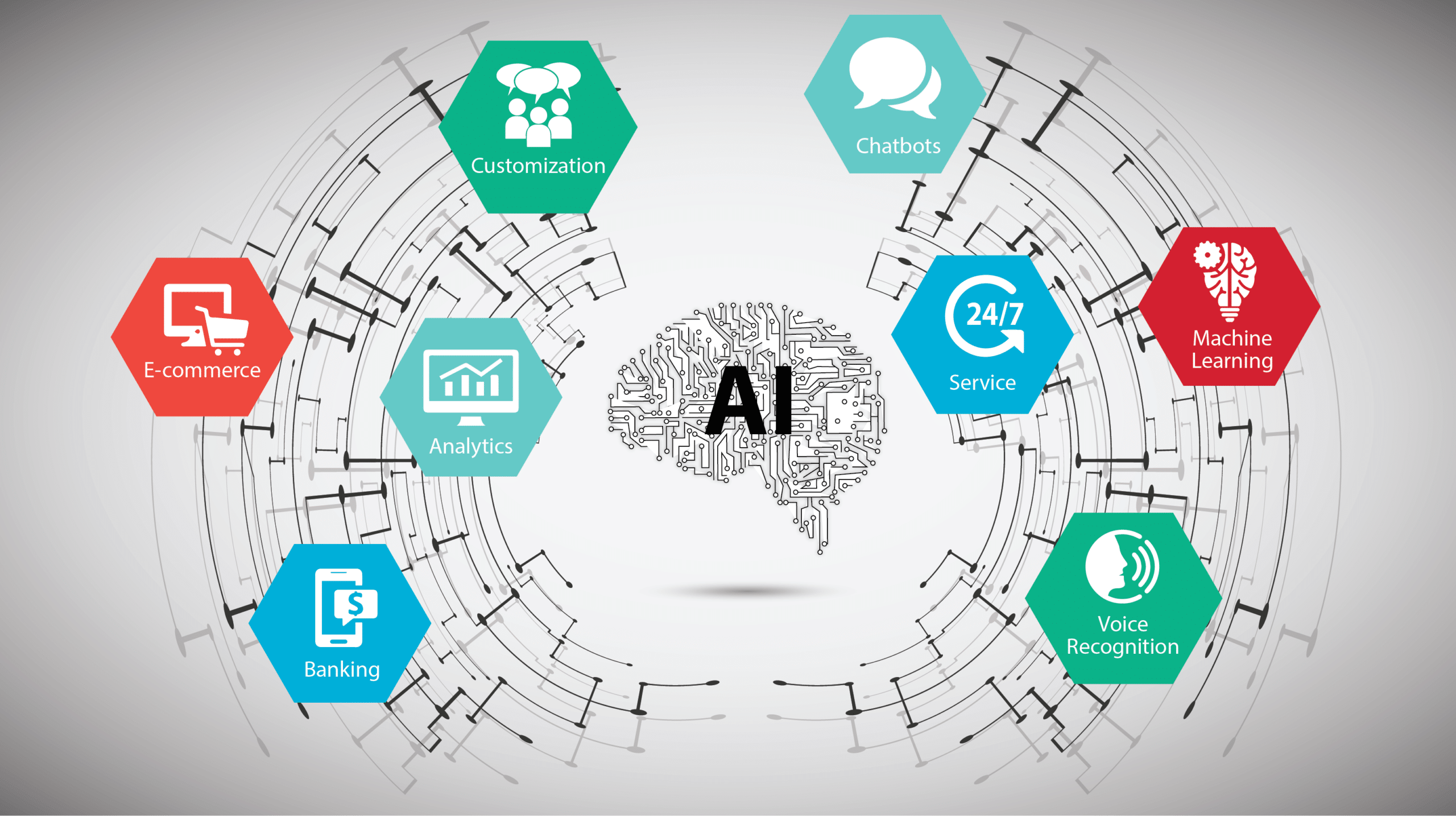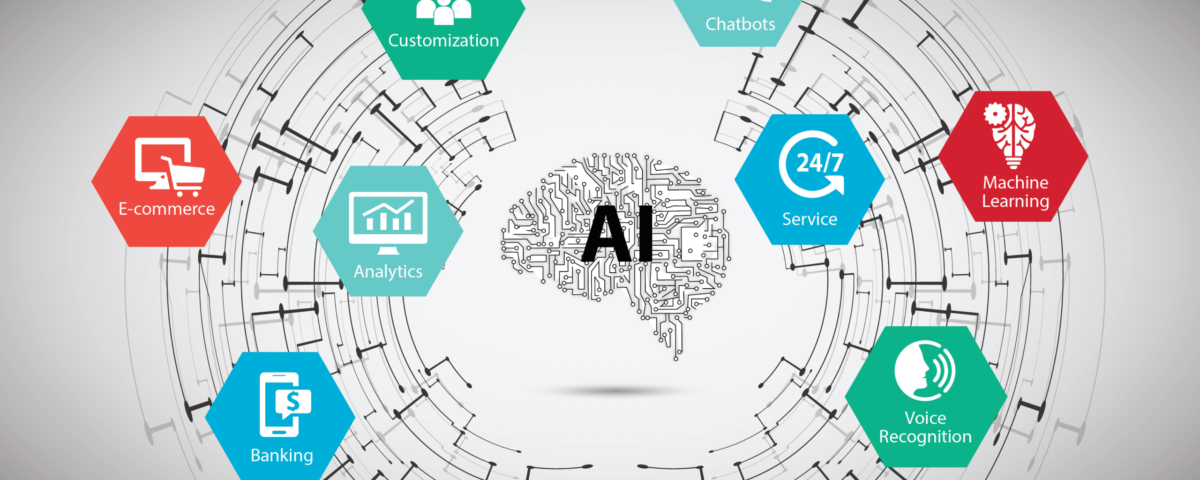
AI Trends in Telemarketing: What to Expect in and Beyond
May 8, 2024
Revolutionizing Customer Engagement: Unveiling the Power of AI in Telemarketing
May 10, 2024Telemarketing has come a long way from its origins as a rudimentary sales tactic of making cold calls to potential customers. In the past, telemarketers often relied on manual dialing, scripted pitches, and limited data insights to connect with prospects. However, with the advent of AI technologies, the landscape of telemarketing has undergone a remarkable transformation, offering businesses unprecedented opportunities to engage with customers in more personalized and efficient ways.
The Evolution of Telemarketing
Traditionally, telemarketing involved contacting prospects over the phone to promote products or services. While this approach was effective to some extent, it often lacked the sophistication and personalization that today’s consumers demand. Telemarketers faced numerous challenges, including low contact rates, rejection from potential customers, and the inability to tailor pitches to individual preferences.
In contrast, AI-powered telemarketing leverages advanced algorithms and data analytics to optimize every stage of the customer journey. From lead generation to customer engagement and performance optimization, AI tools are revolutionizing the way businesses approach telemarketing.
Importance of AI in Telemarketing
AI has become increasingly indispensable in the realm of telemarketing for several reasons:
- Efficiency Enhancement: By automating repetitive tasks such as dialing phone numbers, managing customer data, and scheduling follow-up calls, AI streamlines the telemarketing process, allowing agents to focus their time and energy on high-value activities. This increased efficiency translates into higher productivity, improved lead conversion rates, and ultimately, greater revenue generation for businesses.
- Personalization Revolution: One-size-fits-all sales pitches are no longer effective in today’s hyper-connected world. Consumers expect personalized experiences tailored to their unique needs and preferences. AI enables telemarketers to analyze vast amounts of customer data, such as past purchase history, browsing behavior, and demographic information, to deliver targeted and relevant messages that resonate with individual prospects. This personalized approach not only increases the likelihood of conversion but also fosters stronger relationships between businesses and customers.
AI-Powered Lead Generation
In the competitive landscape of telemarketing, identifying and qualifying leads efficiently is crucial for success. AI-powered lead generation tools leverage predictive analytics, automated lead scoring, and natural language processing (NLP) to streamline this process and identify high-quality prospects with precision.
Predictive Analytics
Predictive analytics harnesses the power of AI and machine learning to analyze historical data and forecast future trends. By examining patterns and correlations within vast datasets, predictive analytics can predict customer behavior, preferences, and purchasing patterns with remarkable accuracy. For example, an e-commerce company can use predictive analytics to anticipate which products a customer is likely to buy based on their past purchases, search history, and demographic profile.
Forecasting Customer Behavior
Predictive analytics enables businesses to anticipate customer needs and preferences before they even express them. By identifying patterns and trends in historical data, businesses can forecast customer behavior, such as the likelihood of making a purchase, the probability of churn, or the propensity to respond to a marketing campaign. Armed with these insights, telemarketers can tailor their approach to each prospect, increasing the likelihood of conversion and maximizing ROI.
Predicting Sales Trends
In addition to forecasting individual customer behavior, predictive analytics can also predict broader market trends and patterns. By analyzing macroeconomic indicators, industry benchmarks, and competitor performance, businesses can identify emerging opportunities and anticipate shifts in consumer demand. For example, a telecommunications company may use predictive analytics to forecast the demand for 5G technology and adjust its marketing strategies accordingly.
Automated Lead Scoring
Traditional lead scoring methods rely on manual assessment and subjective judgment, which can be time-consuming and prone to bias. AI-powered lead scoring algorithms automate this process by analyzing various data points, such as demographic information, online behavior, and engagement metrics, to assign a numerical score to each lead. This score indicates the likelihood of conversion, allowing telemarketers to prioritize their efforts and focus on leads with the highest potential value.
Streamlining Lead Qualification
By automating lead scoring, businesses can accelerate the lead qualification process and ensure that sales teams are focusing their time and resources on leads that are most likely to convert. This not only increases efficiency but also improves the overall effectiveness of telemarketing campaigns, leading to higher conversion rates and ROI.
Improving Sales Team Efficiency
Automated lead scoring frees up valuable time for sales teams by eliminating the need for manual data analysis and scoring. Instead of wasting time on low-quality leads that are unlikely to convert, sales agents can focus their efforts on high-priority leads that have been identified through automated scoring algorithms. This results in a more efficient use of resources and a higher volume of qualified leads, ultimately driving revenue growth for the business.
Natural Language Processing (NLP) in Lead Generation
Natural language processing (NLP) is a branch of artificial intelligence that focuses on the interaction between computers and human language. In the context of telemarketing, NLP enables businesses to analyze and interpret customer conversations, emails, social media posts, and other unstructured data sources to extract valuable insights and identify potential leads.
Understanding Customer Sentiment
NLP algorithms can analyze the sentiment expressed in customer interactions to gauge customer satisfaction levels, identify pain points, and uncover opportunities for improvement. For example, a telemarketing company may use sentiment analysis to evaluate customer feedback from call recordings and identify areas where their agents can improve their communication skills or address common objections.
Enhancing Customer Interactions
By understanding the nuances of human language, NLP-powered systems can engage in more natural and meaningful conversations with customers. Whether it’s through chatbots, virtual assistants, or automated email responses, NLP enables businesses to deliver personalized and contextually relevant messages that resonate with customers on a deeper level. This not only improves the overall customer experience but also increases the likelihood of conversion and brand loyalty.

Enhanced Customer Engagement with AI
In today’s fast-paced digital world, customer engagement is more critical than ever. AI-powered tools such as chatbots, voice recognition technology, and virtual assistants are transforming the way businesses interact with their customers, offering personalized and seamless experiences across multiple touchpoints.
AI-Powered Chatbots
Chatbots are AI-powered conversational agents that interact with customers in real-time, providing instant support and assistance. Whether it’s answering frequently asked questions, resolving customer issues, or guiding users through the sales process, chatbots offer a convenient and efficient way for businesses to engage with their audience 24/7.
24/7 Customer Support
Unlike human agents who are limited by working hours and availability, chatbots are available round the clock to assist customers with their queries and concerns. Whether it’s midnight or the weekend, customers can rely on chatbots to provide timely and relevant assistance, enhancing the overall customer experience and satisfaction.
Personalized Recommendations
By analyzing customer data and understanding their preferences, chatbots can deliver personalized product recommendations, promotions, and content tailored to each individual’s interests and needs. Whether it’s suggesting relevant products based on past purchase history or recommending articles based on browsing behavior, chatbots help businesses deliver more targeted and relevant messages that drive engagement and conversions.
Voice Recognition Technology
Voice recognition technology enables businesses to interact with customers using spoken commands and queries, offering a more natural and intuitive user experience. Whether it’s through virtual assistants like Siri or Alexa or voice-enabled customer service systems, voice recognition technology allows customers to engage with businesses hands-free, whether they’re driving, cooking, or multitasking.
Seamless Communication
Voice recognition technology eliminates the need for customers to type or navigate complex menus, allowing them to communicate with businesses more efficiently and effectively. Whether it’s placing an order, booking an appointment, or troubleshooting an issue, customers can simply speak their request, and the AI-powered system will understand and respond accordingly, streamlining the entire interaction process.
Customized Sales Pitches
By analyzing speech patterns, intonation, and vocal cues, voice recognition technology can customize sales pitches and offers based on individual preferences and behaviors. Whether it’s adjusting the tone and style of communication to match the customer’s mood or tailoring product recommendations based on their past interactions, voice recognition technology enables businesses to deliver more personalized and persuasive messages that resonate with customers on a deeper level.
Virtual Assistants for Telemarketers
Virtual assistants are AI-powered tools designed to assist telemarketers during sales calls by providing real-time insights, guidance, and support. Whether it’s suggesting talking points, providing background information on prospects, or offering coaching tips, virtual assistants help telemarketers deliver more effective and impactful sales pitches that drive results.
Call Preparation Assistance
Before making a call, telemarketers can use virtual assistants to research prospects, gather relevant information, and prepare personalized talking points tailored to each individual’s interests and needs. Whether it’s reviewing past interactions, analyzing purchase history, or identifying common pain points, virtual assistants help telemarketers approach each call with confidence and professionalism.
Real-Time Insights during Calls
During live conversations, virtual assistants can analyze speech patterns, detect key phrases, and provide real-time feedback and suggestions to telemarketers. Whether it’s flagging objections, identifying buying signals, or offering rebuttals to common objections, virtual assistants help telemarketers navigate challenging conversations and maximize their chances of success.
Data Analytics and Insights
In the era of big data, businesses have access to vast amounts of information about their customers, from demographic data and purchase history to browsing behavior and social media interactions. AI-powered data analytics tools enable businesses to harness this wealth of data to gain actionable insights into customer behavior, preferences, and trends, empowering them to make informed decisions and drive business growth.
Big Data Utilization in Telemarketing
Big data refers to the massive volume of structured and unstructured data that businesses generate and collect from various sources, such as customer transactions, website interactions, social media posts, and more. By leveraging AI-driven analytics tools, businesses can extract valuable insights from this data to inform their telemarketing strategies and drive better outcomes.
Target Audience Segmentation
One of the key benefits of big data analytics is the ability to segment the target audience into distinct groups based on common characteristics, behaviors, and preferences. Whether it’s demographic segmentation, psychographic segmentation, or behavioral segmentation, businesses can use AI-powered analytics tools to identify high-value customer segments and tailor their marketing efforts accordingly.
Tailoring Marketing Campaigns
Armed with insights from big data analytics, businesses can personalize their marketing campaigns to resonate with specific audience segments. Whether it’s crafting customized messaging, designing targeted offers, or selecting the most appropriate channels for communication, AI-powered analytics tools help businesses deliver more relevant and engaging marketing content that drives engagement and conversions.
Predictive Dialers
Predictive dialers are AI-powered tools that automate the process of dialing phone numbers and connecting agents with prospects, increasing efficiency and productivity. By analyzing historical call data and predicting the best times to reach prospects, predictive dialers help businesses maximize contact rates and minimize idle time, ensuring that agents spend more time talking to prospects and less time waiting for calls to connect.
Optimizing Call Schedules
Predictive dialers use algorithms to analyze historical call data and predict the best times to reach prospects based on factors such as time of day, day of the week, and past response rates. By scheduling calls strategically during periods of peak responsiveness, predictive dialers help businesses maximize contact rates and increase the likelihood of connecting with prospects.
Increasing Contact Rates
By automating the dialing process and connecting agents with prospects more efficiently, predictive dialers help businesses increase contact rates and accelerate the sales cycle. Whether it’s reaching out to leads generated through marketing campaigns, following up with existing customers, or conducting market research surveys, predictive dialers enable businesses to engage with prospects more effectively and drive better outcomes.
Real-Time Analytics
Real-time analytics tools provide businesses with instant feedback on the performance of their telemarketing campaigns, allowing them to monitor key metrics, track progress, and make data-driven decisions on the fly. Whether it’s analyzing call metrics, measuring conversion rates, or identifying areas for improvement, real-time analytics tools empower businesses to optimize their telemarketing strategies in real-time for maximum impact.
Monitoring Campaign Performance
Real-time analytics dashboards provide businesses with a comprehensive view of their telemarketing campaigns, allowing them to monitor key performance indicators such as call volume, conversion rates, and revenue generated in real-time. By tracking these metrics closely, businesses can identify trends, patterns, and anomalies, enabling them to make data-driven decisions and adjust their strategies as needed to achieve their goals.
Adjusting Strategies on the Fly
One of the key advantages of real-time analytics is the ability to adapt and respond quickly to changing market conditions, customer preferences, and campaign performance. Whether it’s reallocating resources, tweaking messaging, or adjusting targeting criteria, real-time analytics tools enable businesses to pivot their telemarketing strategies in real-time to maximize effectiveness and drive better results.

AI Tools for Performance Optimization
In the fast-paced world of telemarketing, performance optimization is essential for success. AI-powered tools such as automated call transcription, AI-driven sales coaching, and CRM integration help businesses improve agent performance, streamline processes, and enhance customer relationships.
Automated Call Transcription
Automated call transcription software converts audio recordings of sales calls into text format, enabling businesses to analyze and extract valuable insights from customer conversations. By transcribing calls automatically, businesses can identify key trends, patterns, and opportunities, empowering them to optimize their telemarketing strategies and drive better outcomes.
Analyzing Call Conversations
Automated call transcription allows businesses to analyze customer conversations more effectively, identifying common objections, pain points, and buying signals. Whether it’s uncovering customer needs, overcoming objections, or identifying cross-selling opportunities, automated call transcription enables businesses to extract valuable insights from every interaction and tailor their approach accordingly.
Identifying Sales Opportunities
By analyzing call transcripts for keywords, phrases, and sentiment, businesses can identify potential sales opportunities and prioritize follow-up actions accordingly. Whether it’s flagging hot leads for immediate follow-up, scheduling callbacks for further qualification, or updating CRM records with relevant information, automated call transcription helps businesses streamline their sales processes and maximize conversion rates.
AI-Driven Sales Coaching
AI-driven sales coaching platforms leverage machine learning algorithms to analyze sales calls, provide personalized feedback, and offer actionable insights to sales agents. By evaluating performance metrics, identifying areas for improvement, and delivering targeted coaching recommendations, AI-driven sales coaching helps agents hone their skills, overcome challenges, and achieve their sales targets more effectively.
Personalized Feedback for Agents
AI-driven sales coaching platforms provide personalized feedback to sales agents based on their individual performance metrics, strengths, and weaknesses. Whether it’s highlighting areas for improvement, reinforcing positive behaviors, or suggesting specific actions to enhance performance, AI-driven sales coaching helps agents develop their skills and reach their full potential.
Continuous Improvement Culture
By fostering a culture of continuous improvement and learning, AI-driven sales coaching helps businesses create high-performing sales teams that are adaptable, resilient, and results-driven. Whether it’s providing ongoing training, mentoring, or coaching opportunities, AI-driven sales coaching enables businesses to invest in their people and empower them to succeed in a competitive marketplace.
CRM Integration
Integrating AI into customer relationship management (CRM) systems streamlines data management processes, enhances customer relationships, and improves overall efficiency. Whether it’s automating lead scoring, personalizing communication, or tracking customer interactions, AI-powered CRM solutions help businesses deliver seamless and personalized experiences that drive engagement and loyalty.
Streamlining Data Management
AI-powered CRM systems automate routine data management tasks, such as lead scoring, segmentation, and follow-up, freeing up valuable time for sales teams to focus on building relationships and closing deals. By centralizing customer data and streamlining processes, AI-powered CRM solutions help businesses improve efficiency, productivity, and collaboration across the organization.
Enhancing Customer Relationships
By leveraging AI to analyze customer data and predict behavior, businesses can deliver more personalized and relevant experiences that resonate with customers on a deeper level. Whether it’s tailoring communication to individual preferences, anticipating needs before they arise, or providing proactive support and guidance, AI-powered CRM solutions help businesses build stronger, more meaningful relationships with their customers.

Compliance and Ethics in AI Telemarketing
As businesses increasingly rely on AI technologies to power their telemarketing efforts, it’s essential to prioritize compliance with regulations, ensure ethical use of AI, and maintain transparency and trust with customers. From data privacy and consent management to regulatory compliance and ethical AI development, businesses must navigate a complex landscape of legal, ethical, and social considerations to build sustainable and responsible telemarketing practices.
Ensuring Data Privacy
In an era of growing concerns about data privacy and security, businesses must prioritize compliance with regulations such as the General Data Protection Regulation (GDPR) to protect customer information and earn their trust. By implementing robust data protection measures, such as encryption, access controls, and data anonymization, businesses can safeguard sensitive information and demonstrate their commitment to privacy and security.
GDPR Compliance
The General Data Protection Regulation (GDPR) is a comprehensive data privacy law that imposes strict requirements on how businesses collect, process, and store personal data of EU residents. From obtaining explicit consent to providing transparent disclosures and implementing data protection measures, GDPR compliance is essential for businesses that engage in telemarketing activities targeting EU customers.
Consent Management
Consent management is a critical aspect of data privacy and compliance, particularly in the context of telemarketing. Businesses must obtain explicit consent from individuals before contacting them for marketing purposes and provide clear information about how their data will be used, stored, and shared. By implementing robust consent management processes, businesses can ensure compliance with regulatory requirements and build trust with customers.
Ethical Use of AI
Ethical considerations are paramount in the development and deployment of AI-powered telemarketing tools, from ensuring transparency and fairness in AI algorithms to promoting diversity and inclusion in AI development. By adhering to ethical principles and guidelines, businesses can mitigate the risks of bias, discrimination, and unintended consequences and ensure that their AI-powered telemarketing efforts are ethical, responsible, and trustworthy.
Transparency in AI Algorithms
Transparency is essential for building trust and accountability in AI-powered systems. Businesses must be transparent about how AI algorithms are developed, trained, and deployed, including factors such as data sources, model architecture, and decision-making criteria. By providing clear explanations and disclosures, businesses can empower customers to understand and trust AI-powered telemarketing tools.
Fair Treatment of Customers
Fairness is a fundamental ethical principle that businesses must uphold in their telemarketing practices. AI algorithms must be designed and trained to treat all customers fairly and impartially, regardless of factors such as race, gender, age, or socioeconomic status. By addressing bias and discrimination in AI systems, businesses can ensure that their telemarketing efforts are ethical, inclusive, and respectful of individual rights and dignity.
Regulatory Compliance
In addition to data privacy and ethical considerations, businesses must also comply with regulatory guidelines set forth by organizations such as the Federal Communications Commission (FCC) to ensure ethical and legal telemarketing practices. From honoring do-not-call registries to providing clear opt-out mechanisms and maintaining accurate records, regulatory compliance is essential for businesses that engage in telemarketing activities.
FCC Guidelines
The Federal Communications Commission (FCC) enforces regulations governing telemarketing practices in the United States, including the Telephone Consumer Protection Act (TCPA) and the Telemarketing Sales Rule (TSR). These regulations impose restrictions on unsolicited calls, robocalls, and automated dialing systems, as well as requirements for caller identification, call frequency, and opt-out mechanisms. By adhering to FCC guidelines, businesses can avoid legal liabilities and maintain trust with customers.
Industry Standards and Best Practices
In addition to regulatory requirements, businesses should also adhere to industry standards and best practices to ensure ethical and responsible telemarketing practices. Industry organizations such as the Direct Marketing Association (DMA) and the Professional Association for Customer Engagement (PACE) provide guidelines and resources to help businesses navigate the complex landscape of telemarketing regulations and compliance requirements.
Future Trends and Challenges
Looking ahead, the future of telemarketing is filled with both opportunities and challenges, as AI technologies continue to evolve and reshape the way businesses engage with customers. From hyper-personalization and augmented reality integration to addressing bias and promoting human-AI collaboration, businesses must stay ahead of the curve to remain competitive in an increasingly digital and data-driven marketplace.
AI Advancements in Telemarketing
As AI technologies continue to advance, we can expect to see further innovations in telemarketing, including:
- Hyper-personalization: AI-powered tools will enable businesses to deliver highly personalized and targeted marketing messages tailored to individual preferences and behaviors, driving higher engagement and conversion rates.
- Augmented reality integration: By integrating augmented reality (AR) technology into telemarketing experiences, businesses can create immersive and interactive customer interactions that capture attention and drive brand loyalty.
Addressing Bias in AI
Addressing bias in AI algorithms is a critical challenge for the telemarketing industry, as biased algorithms can lead to unfair treatment of customers and undermine trust in AI-powered systems. To address this challenge, businesses must:
- Promote diversity and inclusion in AI development: By fostering diverse teams and perspectives, businesses can mitigate the risks of bias and ensure that AI algorithms are designed and trained to treat all customers fairly and equitably.
- Ethical AI development: Businesses must prioritize ethical considerations throughout the AI development lifecycle, from data collection and model training to deployment and evaluation. By adhering to ethical principles and guidelines, businesses can build trust with customers and stakeholders and ensure that their AI-powered telemarketing efforts are ethical, responsible, and trustworthy.
Human-AI Collaboration
In the era of AI, human-AI collaboration will become increasingly important for businesses to leverage the strengths of both humans and machines. By augmenting human capabilities with AI-powered tools and technologies, businesses can:
- Enhance productivity and efficiency: AI-powered tools can automate repetitive tasks, analyze vast amounts of data, and provide real-time insights and recommendations, enabling humans to focus on higher-value activities such as building relationships and solving complex problems.
- Reskill and train employees: As AI technologies continue to evolve, businesses must invest in reskilling and training initiatives to equip employees with the skills and knowledge they need to thrive in an AI-powered world. By fostering a culture of continuous learning and development, businesses can empower employees to embrace AI technologies and adapt to changing roles and responsibilities.
In conclusion, AI tools are revolutionizing telemarketing in 2024, offering businesses unprecedented opportunities to engage with customers in more personalized, efficient, and effective ways. From AI-powered lead generation and customer engagement to data analytics and compliance, businesses must embrace AI technologies and navigate the complex landscape of ethical, legal, and regulatory considerations to unlock the full potential of AI in telemarketing.



